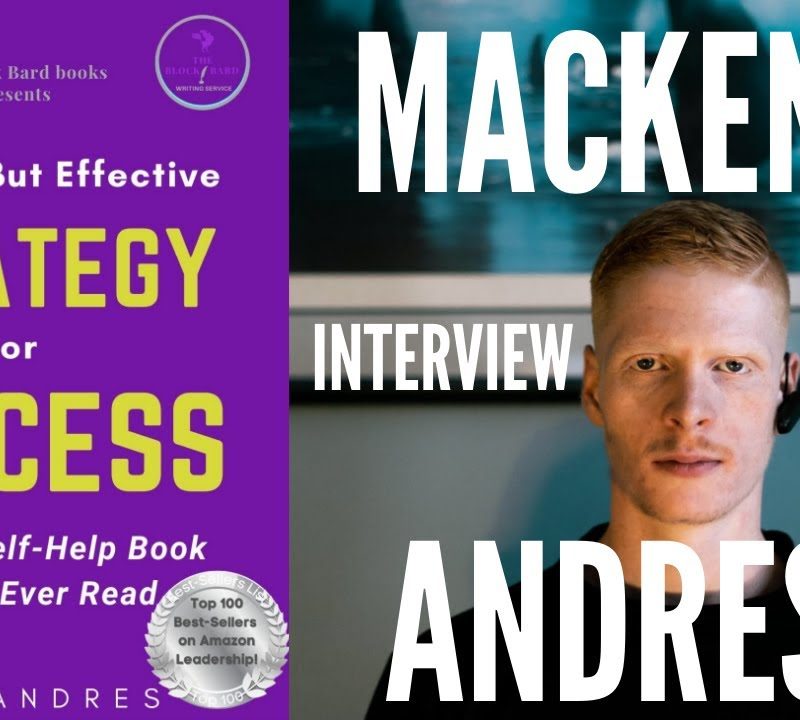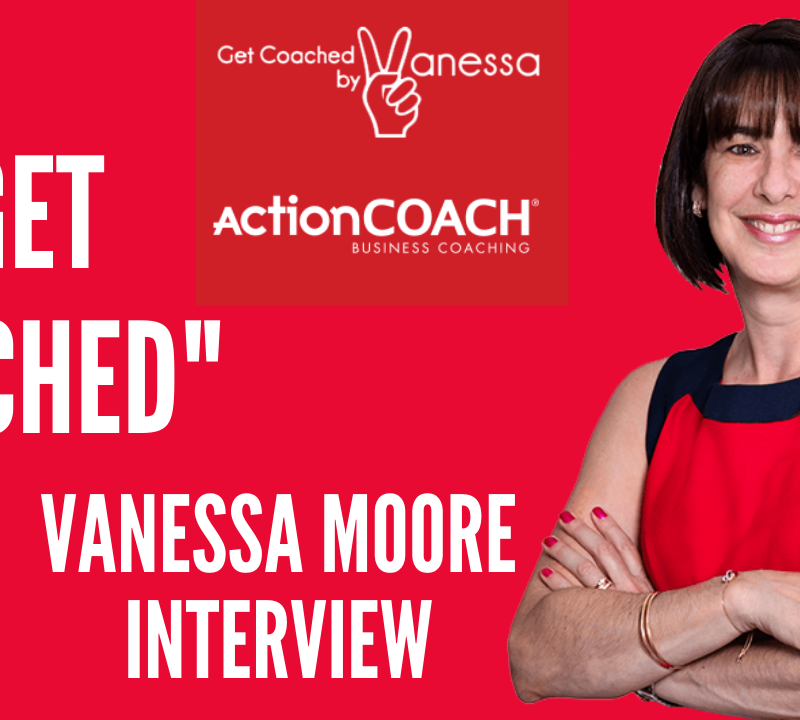https://www.askmomparenting.com/
About Ask Mom Parenting Hi, I’m Sue Using humor and wisdom has helped me balance being a wife, mom to four kids (including surprise triplets), founder of three businesses, an award-winning author and a parenting specialist. The parenting specialist part, none of us ever saw coming. As a one-time reluctant parent and reformed yeller, I had much to learn about raising children. Turns out, those with the most to learn can sometimes become the best teachers. I know how it feels to catch cat naps at red lights and stress myself silly. I intimately understand the overwhelm that parents live daily. I have been you! Ask Mom Parenting evolved after years of mentoring other parents who sought ways to make parenting easier, more effective and less thankless. My partnership parenting techniques have become sought after for quickly bringing harmony into your home. If I can emerge triumphant, so can you… and I’ll show you how!
Best Book Bits podcast. It brings you Sue Donnellan, parenting specialist, mum four, founder of three businesses, award-winning USA Today, bestselling author of Secrets to Parenting Without giving a fuck, Sue, thank you for being on the show. Thank you for having me. First off, where did you get the. Title of the book.
It’s such an amazing title of the book. It came from a single dad that I mentor and I kept telling him, he had a teenage daughter, you gotta let go of control. You can’t, you can’t, restriction creates rebellion. And finally, and I used the word fuck very liberally, and that’s part of my vernacular.
So we were joking around. I said, yeah, I’m writing this book. And he came up with the title. And once I heard it, I couldn’t un unhear it, . So I stuck with it. Yeah. Perfect. Now tell us the story about how you became a parent yourself. I know you had a, I think a two year old and then you tried for a second, and then tell me how that second ended up turning into four.
Yeah. We just wanted to have our second baby and apparently I don’t know, I dropped two eggs and once. Split. So we had[00:01:00] idea. I went to have my second baby and it turned into identical boys and a girl. So I went from one to four kids overnight and I wasn’t really even a big fan of kids in the beginning in general, I just was having a couple kids for my husband to do something nice for the man who wanted a family
So yes, that happened to me unexpectedly and found myself drowning in parenting very early. Yeah, I can imagine. Triplets. Yeah I dunno how you coped. What was that experience like when you not only when you found out, but in, in the early couple years as well. So what was that like? Was an absolute handful or yeah.
What was the experience like? Yeah, it was quite overwhelming. And I also run my own business, which I ran from home. , which wasn’t really that popular of a thing to do way back then as it is now. But my husband is in the military and got, was deployed five times and so I did have a lot on my plate and I was a yeller.
I found that, being Italian, I didn’t know how to get kids motivated. I didn’t know what to do and I just found myself knee-jerk reacting, to yelling and trying to just get the kids to do it because I said, [00:02:00] Didn’t like it. I thought that’s all I had to do. I just talked to them like I talked to a friend or talked to anyone.
I didn’t know that there was this whole psychological nuance approach that we needed to get children to listen and to be motivated. That was all new. Yeah. When did you start to become a parenting specialist and when did you really go into the next gear of figuring this figuring this thing?
I think the kids were probably my oldest, probably about 10. And the triplets were probably about seven when I finally got, I had gone to a couple of parenting classes when they were like two and five. And the one place where we went to preschool had a Montessori background where it’s all about accountability and self-empowerment for the kids.
That sort of exposed me to what kids are capable of. If we treat them with a little bit of autonomy and respect and having expectations of them at a young age, we tend to think that kids don’t understand or, they’re not capable of certain things and I’m just gonna do it myself. And so as I started to learn this, I had like a.
Classroom in my home with four [00:03:00] kids and I got to experiment with a variety of techniques and tips. And I got my husband and I got a lot of compliments on the kids and their behavior and going to restaurants. And I started helping other parents as I started fine tuning my techniques and my methods and I saw what worked and I was helping other parents and friends of family and so forth until it became when the kids got to be in like early adolescence.
I was really rolling it out a little bit more because I was friends with other parents that had kids in pre-adolescent age when it really started to get. Challenging at that age. Yeah. How did you how did you commercialize it? So what was your offering? Did you do the book first? Was it the platform?
No. I was mentoring for a long time prior to the book. I really didn’t start, I, it took me about three years to write the book and that didn’t come to fruition until maybe they were into college. Very, just early into college, because having had the teenagers in my rear view mirror and going through.
What other parents were doing to try to get their kids to come home on time and to get them to get good [00:04:00] grades and all of these types of things. I thought, gosh. Guys, lighten up just a little bit. We don’t, I just found that they started really ramping up the control in the fear parenting started kicking into high gear when the kids became teenagers.
So I was really doing a lot of mentoring at that point. And that became really more of a business, a side business and monetized and people were on my schedule. And then the book was being written in conjunction. Yeah. Parent in such a broad spectrum, what is the ages that you deal with with parents and kids?
The best ages are like anywhere from three to, 18, I three is. Two to three is when you really actually start actively parenting where you’re getting up off the car couch and saying, I said, no. Here’s what no looks like. Don’t touch. The parenting actually really begins around two to three.
Carries on, into adulthood and forever, right? I would say three to 18. Yeah. Got it. And one of the reasons I read your book and connected with yourself is I’ve got a four year old boy and a near only two year old girl as well, and can be challenging. And my boy the other [00:05:00] day just asked me about the birds and the bees is like, how do humans get made?
And I told him as best as I could, but I don’t think it, I don’t think it flew as well. It’s like kind of dogs get made. So anyway, so it’s a fun, it’s a fun thing and I’m looking forward. To becoming the best parent I can. And I’ve read a few parenting books and a lot of, it’s not much to do with the kids, it’s more got to do with the parents.
And what are some of the biggest complaints or some of the things that people come and see you for and what are they trying to alleviate as well? What are the biggest things that parents are struggling with? Just the kids aren’t listening. They’re tuning out. They’re not they’re just not behaving.
Whether it’s the younger kids, it’s the tantrums. It’s the tuned outness. It’s a lot of gaming. How do I put controls on this? How do I get my kids to listen? How do I get them to contribute and care at home? Just those types of things. It depends on the age, but like with teenagers, Yeah. How do I really reign into social media?
How do, I am dealing a lot with parents who have preteens that are into porn or looking at porn and y you know what, we’ve got a whole method of what we do for that. [00:06:00] But it’s just so many things that we’re, that the kids are navigating these days way more than, even we did when we were younger.
And it’s really requiring parents to understand what your kids are faced with. Instead of looking at it from a parent’s perspective and judging and being scared or having fear about, oh my, I cannot protect my kids. Really, it’s about, when your child is asking you, where do babies come from?
Or How do adults get made? This is your chance to start. Getting your child to know that you are open to every discussion without, any judgment. And we just, we bill ourselves as un unflappable and unshockable and it starts as young as whenever they ask a question, that means they’re ready to have the right honest answer.
Yeah. Deep off onto that, tell me a little bit about how one of your approaches was, being unshockable and. Get your children comfortable enough to be comfortable with you to talk about uncomfortable things. What’s your suggestion through there on how parents can, become unshockable?
I made it a very intentional effort to brand [00:07:00] myself as unshockable as they start getting older. Of course the stakes become higher when they get older. But for example, if when your child is four and they ask you where babies come from and you explain it in a very mature. Respectful way the questions will then just start to get a little bit more, open and serious.
And it’ll get to the point where, your daughter is at a sleepover or something, and now they saw somebody doing drugs, so they saw somebody having sex, or they saw whatever they see they want answers to, and they want honest answers, and they don’t need you to be like, Ugh, ah, ugh. They need you to just.
Not react and just, oh, here’s how that works, or, oh, okay, what did you think when you saw that? And, ask questions and you’re not shockable and you’re not reacting. Kids key in on our reactions, and especially when they’re like 8, 9, 10, if they think you’re reacting or you’re squeamish or you don’t want to discuss a certain topic, then they won’t trust you.
And that relationship of trust and respect is earned. From both the parent and the child, from a very [00:08:00] early age. Yeah it’s so true. I’m not thinking about the teenage years yet, but I do have I have a lot of friends with kids that the kids are going into teenage years and they do change quite a bit.
And yeah, it’s very interesting on that asz aspect, going down to the younger ones, how do we end tantrums? I know you talk about learning to respond to them, but how, yeah how do we cope with children with tantrum? First of all, I think what I usually do is I’ll ask a parent to define like the age and where they’re at.
There’s every part of raising children is a phase, and certain phases last longer than others. And so I teach parents to look for patterns. So anytime you see a behavior twice, you’re in a pattern a pattern or a phase. So the trick becomes, how do I interrupt this pattern? So what I can say about tantrums is that depending on the age, if it’s a terrible twos or threes tantrum, That’s different than a child, five or six, throwing a, throwing toys or throwing down.
That’s a different behavior. So it’s important to understand what’s going on in the home and what the age of the child is. But say if it’s a tantrum, say your daughter’s two. [00:09:00] So two to three terrible twos, terrible threes it’s again, look for the pattern. If you’re seeing this behavior of them exerting their will, now, okay. I. Interrupt this pattern and kind of parent in advance and be prepared. So it depends on what the child’s doing as to what I suggest on how to interrupt that pattern. If we’re throwing a fit at the store then, and now you have to drop all your stuff. And you have to leave because this child is throwing such a tantrum.
You’re embarrassed and you’re just you need to leave. Then what we’ll do is we’ll do a couple dry runs of going to the store, sticking to our list. teaching and training that child in advance. Here’s my expectation. We’re gonna go to the store. We’re not gonna scream and cry for toys. Here’s my expectation.
We’re gonna parent in advance. Here’s my expectation of how we behave in a store. We’re getting only the things on this list. And then you’re gonna go and you’re gonna do or dry run a training cuz children are adults in training and I have a. Methodology on how I teach and [00:10:00] reframe parenting as children being adults In training we tend to think we’re the parent and we have all the right answers.
But if we shift our thinking toward training we really circumvent and sidestep a lot of the behaviors that they, that the kids throw for attention and for just, to try to get their exert their will. But if you’re at the store, then you do a dry run and say, The behavior you did at the store was unacceptable.
Here’s what I expect. Here’s how we go to the store. And then you do a dry run. When you don’t, when you’re not so harried and in a rush, you’ll go and do a training run. Only you know, it’s a training run. They don’t know. And you lay out the expectations much like any boss would do with an employee.
Are much like, we do in any of our relationships, we tend to forget. We can do that with our kids. You sit with a two or three year old, here’s the expectation, here’s how we act at the store. And any tantrums that you take care of at home will be less tantrums you’ll get in the in public.
So that’s also something to think about if you just go, oh, she’s home and I don’t [00:11:00] really need to deal with it. No. You wanna take care of it. The more that you take care of it at home, the less you get it out in public. Yeah. They talk about, what you practice in private gets shown in public.
Same thing. I like that. Expectations reinforced training behavior. And children see children as adults in training. See that’s the thing about shifting your perspective as an adult, as a parent and realizing that, they’re actually, they might be small, but they’re actually perfectly proportionate in terms of their size and weight.
And they are just mini humans or mini adults trying to figure it out themselves as well. So we should, not take it as serious cuz parenting isn’t as serious as we think it is. We. We look at our parents, so one of the things you talk about as well is, how do you forgive your own parents as well?
Everyone’s got a different upbringing and we replicate the same parenting style sometimes that we’ve been parented on because that’s how we were parented. We don’t know any other way. , but to parent as yelling, if your parents yelled at you and you yell at your child, how do you break that cycle as well?
But how can we, first and foremost, I guess the older we get, we realize our parents were just doing the best they can, but to forgive our parents and then to [00:12:00] change maybe some of the styles that weren’t, or were accepted back in the day. But nowadays there’s newer ways to do it.
How do we go about that? The first sort of steps to forgive our parents? It starts with intentionality, really in intention. When I wrote the parenting book, I very deliberately put the first half as your relationship with yourself first, and then that includes, Letting go of control.
Putting your ego aside, not being for sale, letting go of guilt. Guilt is a waste of emotion. So the first half is these are the things that we want to do to put self-awareness on ourselves. Because when we show up differently for our children, then we get a different result. If we’re getting bad behavior and we’re keep yelling and ramping it.
Then the behavior’s not gonna change. So we have to put the mirror on ourselves first. So first half of the book is your self-awareness, and the second half of book is your relationship with your kids. So we take what we learned, we apply it to the kids we talk about respect, we talk about the power of we, which is like a partnership, parenting.
But again, [00:13:00] everything is, it’s all baked in with accountability and with the kids doing what we ask them to do. It’s just. , how to approach it in a foundationally respectful way. And just learning new techniques that if we find ourselves yelling and doing the same thing over and over again and getting no result change, we know, okay, it starts with me and the kid is reacting to me, so how do I change to get a different result?
Yeah. Makes a lot of sense. What are some of the most common parenting mistakes that you find or that you see? Parents. Blaming others and not really understanding what our kids are capable of. I think one of the things that I find myself, sometimes we’re too close to a situation, right?
So we don’t see the fourth through the trees. One of the things that I. Find myself saying to parents, which is so simple and basic, is have you asked them so we keep trying to, I can’t get my kid to, to do the lawn, or I can’t get this or that. And I say have you asked them when a good time to mow the lawn would be so that you guys can come to a decision [00:14:00] that you’re not dictating all of the time and you’re not controlling and you just say, Hey, I need the lawn mode this weekend.
When are you available? And then we agreed. So if the law isn’t getting mowed, you go hey, we agreed to this. And so it’s like I said, baking in the accountability factor using certain keywords like we agreed parenting in advance and getting agreement upfront. There are certain techniques and methods that really are successful that prevent us from having to yell.
So yeah, I would say that’s what one of the more successful ways of. Them to react positively. And I think it all dials down to the number one com. Number one skill that humans have is communication or miscommunication. And it’s about first communicating well with yourself first. Whether that be, getting yourself in the right attitude, state of mind, the right thoughts.
But yeah, getting yourself first corrected with your right. Your own correct communication with internal dialogue and then expressing good communication with your children. I think that’s very important as well. And I like what [00:15:00] you said before, how some of the common parenting mistakes is we underestimate their ability to even understand or articulate just because they might not have all the tools and do it eloquently.
They do understand. So if we communicate with our kids fairly properly and then in the right environment, and I like how you. Communicate in advance. So tell ’em what to expect up front before you get into a situation of high emotion environment where you know they’re not listening because they’re triggered.
Get ’em into a state of just a normal environment and communicate with your kids as well, which is great. Yeah, thank you for sharing that. And then we’re triggered and we’re yelling, right? That’s how we allow ourselves to get sucked into that vortex of emotion. Whereas if you’re thinking in advance now, all I have to do is walk over and go, what did we agree to?
I don’t have to yell and repeat. And the kids don’t understand why we’re applying our adult stress to them. They’re like, God chill. You expand on that as well. One of the things I do with my kids is tell ’em what’s coming. What day it is today, what we’re doing today, what we’re doing tomorrow, we’re going to zoo in the next couple days with some friends.
And they [00:16:00] were excited about that. And even just talking at the end of the day on how their day was and. Them to process a timeline. We’ve got different timelines, so that’s where the miscommunication comes in. We need something done now because we are thinking 17 steps ahead, and they’re not even thinking about the next step.
They’re just in chill mode. So that’s where that bit of miscommunication comes as well. You’ve spoken about before about partnership parenting. Wh what is partnership parenting? What’s an example of It’s the chapter right before partnership parenting or the power of we is respect.
I lay the groundwork for respect and what does that look like? And if you ask any parent, do you treat your child with respect, they’ll all tell you yes. When we really delve into what respect looks like, what none of us were treating our kids with respect. So with res, with a foundation of respect married to the we.
So it’s respect comes. The power of we and the partnership aspect. So if you understand how I’m treating this relationship with respect, it also, now we’re partners and so it’s parents like to debate I’m the parent. I just wanna be their friend. I, parents [00:17:00] have a long debate about whether they’re their friend or they’re not their friend.
And I’m not talking about any of that. I’m talking about partners where we walk side by side and I’m there for you when you need me, but you’re on your own, until you need me. And it’s a methodology and a strategy of we, where we are in this together, as opposed to me being the dictator, me being the parent always, right?
Let’s work this out together. So I get a lot of parents when my child won’t, for preteens or teens, they, curfew is a big deal, so they’re not coming on a homemade curfew. And have you, like I say, have you asked them what a reasonable curfew is? So of course you’d say, Hey when do you think a reasonable time to be home would be?
And of course they’re gonna say, 12 midnight or 12 o’clock when one 30, whatever it is, they’re gonna come up and now you’re gonna meet in the middle. You’re gonna teach them about negotiation. You’re gonna teach ’em about, we’re gonna teach ’em about. I don’t win and you don’t win, but we both win.
We’re gonna teach all of these things that are gonna be beneficial for every [00:18:00] relationship in their life. But we’re gonna say, when do you think a good time is? Why do you think that’s a good time? And then what we’re going to do is if they say midnight, I’m gonna come back in at 1115, say, so we’re gonna come to this decision together.
We are going to decide, and then I’m gonna say I’m gonna say 1115, and if you can show me that you can come home at 1115, then let’s move it to 1130 and eventually you’ll earn the midnight if you show me. So do you see how I’m building in accountability? But I’m getting them in on the decision.
So the chances of them busting an 1115 curfew when we agreed to it, are a lot more slim than they would be if I’m just dictating. I want you home at midnight and now they’re fighting me. Mom, my friends can come home at 1230. I have a, now I’m inviting argument. But if I get them in, involved in it and I treat them as a partner like I would any partner, whether you’re a friend or a business associate, it’s always about I don’t win.
You don’t win. We both. and that’s what [00:19:00] partnership parenting is. And I guess becoming a parent now and realizing that nothing really good happens after a certain time at night. Anyway, , it’s so true. Hate to sound like my parents, but as my mom always said, nothing good happens after midnight. I will give you a little side note to that is one of my strategies with our kids was to always make their curfew 30 minutes before they’re friends.
And that was just a strategy I had. I didn’t have a lot of rules, but my curfew was not to be negotiated. So 1130, if their friends were getting home at midnight and some other friends didn’t even have curfews, which what is that? So many times the kids heard, you wouldn’t believe what happened after you left
The cops came after you left and so I really got a lot of mileage out of making their curfew just even 30 minutes prior to their friends. And just seeing wow. Yep. In those late hours, a lot of stuff is going down. . , I never had a curfew. I was never told what to do, when to do it.
And that’s, but it’s not a good parent. That’s not a good parenting strategy at all. But yeah, I was given a lot of rope and freedom back in the day, which I walked back on with. Yeah. Thank you. [00:20:00] Thank you to my parents. I was the youngest child, so I think my parents tried to control the first two and the third one.
It’s yeah, you do what you’re gonna do. We’re too busy with the other ones as well. Let’s switch gears a bit and talk about. My kid is not obsessed with money, but it’s money. Gimme money. I wanna go to the milk bar. I wanna buy candy. Whatever it is, things. Money grows on trees.
How do we teach our kids? Money and finances and that things aren’t for free, even though it looks like things are free because people are paying stuff with the phone with a card. They don’t understand the concept of, going to work. And then I told him, I said, oh, he’s you said you’re never going back to work, dad, cuz I’m semi retire.
I said no I’m. Go, going to do some work on businesses so I can get money, so I can take you to the milk bus. He can buy lollies. And he goes, go to work dad. He is he goes, go to work because he is, he understands that. How do we teach our kids that money doesn’t grow on trees? And what do we do as parents over the years?
This could be a gradual, this could be a decade conversation. What do we do? Parents have different philosophies. Personally, my personal philosophy was I never gave allowance ever. You just did things around the house because it was expected and we are [00:21:00] all on the same team, so everybody’s gonna divide up their chores.
I wasn’t overly micromanaging about that. Some parents really put a lot of. Emphasis and on, they’ve gotta do all this at home. You know what? Honestly, if they’re just doing a few things a month, really, they’re going to feel like they’re part of the team and they’re going to feel accountable.
We don’t have to over-manage that. I never gave allowance because I just don’t think that kids at young ages are able to comprehend the idea of. Just either free money because I’m existing with some parents, just give money for the sake of an allowance so they can learn to manage money. It doesn’t really work that way in my opinion.
Or if you think that you have to give money to motivate them to do things. Now you’re teaching a whole new of thinking that I have to get paid for everything I do. So I. Take allowance off the table a hundred percent. Then what I also think is important on the way to learning about money is teaching about volunteering and doing for free.
So at [00:22:00] the, at your son’s age he’s four, you said. So learning about how do we volunteer, how do we, and you don’t have to go crazy. You don’t have to be like, oh my gosh, every week we’re, kids just see what you’re doing. They see, they get an idea. You could go volunteer at a soup kitchen, even just twice a.
Just an idea to spark conversation to see about giving the value of giving at this age. I think at this age he might understand mine, but he’s got a very simplistic view of go to work dad, so I can get candy. So right now he’s already attaching the idea of my dad’s work and money to getting me candy.
So that’s not necessarily a connection I would wanna have right now. I would want dad’s working for his own money and I get to choose where I spend it. , right? So I just because I’m working and making money doesn’t mean that automatically qualifies you for candy. So we wanna think about how we have this conversation that dad’s working.
So that’s dad’s money. So when you work and you make your money, you can decide how [00:23:00] you want to spend it. If I’m feeling really generous, I can share my money so that you can have candy, but we’ll both have something together so I’m not just giving him. for candy. It’s let’s go out for ice cream.
We can both, again, that whole we, that partnership idea, we’re building that into every interaction. But I would say that anytime we, we also, we had an expectation that when our kids turned 15, 16, as early as they could work, they had to get jobs. We are, our expectation was, you’re gonna do a sport, you’re going to, we didn’t care so much about grades, but keep your grades decent and have a.
you need to balance all these things at 1516. And boy did that set the tone for success in the future with school and balancing and all of that. Until then, until they’re legally able to work, I would say focus on volunteering and giving and his toys that he’s getting rid of and like really let him see that.
Let’s go to the foster home. Let’s go where, see, a child who doesn’t have, and he gets to benefit and look how. Which you’re giving away and tired of. This child is brand new to him. [00:24:00] So that’s how I would handle that for now. Great advice. Yeah. Implement some of that as well. Yeah. It’s such an interesting topic when it comes to money.
But yeah the biggest topic, which you spoke briefly about earlier is digital devices. Mobile phones the internet and not just write it to my child for, but yeah. Tell us a little bit about what you’re experiencing out there. What are some strategies that parents can take away that are listening to this to, to implement?
How do we, stop the phone addiction, even that. as adults, we might have the phone addiction, and they see us on the phone all the time, and everyone’s on a tablet, someone’s watching the tv, someone’s on the iPad, someone’s on the phone. We’ve got YouTube for kids these days, but, two quicks away.
All of a sudden they’re on a porn site and going, Hey, what’s going on here? Honestly what do we do? What are those conversations you are having with parent with teenage kids and stuff? What do you, what do. It’s a many multi-pronged conversation. One of the things that I will start with is, like in the first half of the book where I talk about the relationship with yourself, one of the biggest things I saw that really f really motivated me to write [00:25:00] this book was a chapter that I wrote called Be Are You for Sale?
I can’t tell you how many parents are for sale. They just stand for. They don’t, they say it, but they don’t mean it and they don’t do it. The same parents tell you their kids not to drink and then the minute their kid gets their license, come pick me up drunk at the bar or whatever. We all have to look in the mirror and go, what is my kid seeing in me?
And so starting with that self-awareness and starting with, are you for sale? Ask yourself, are you doing that? Are you on your phone all the time? Are you watching TV all day? Ask yourself what you’re willing to do and what you’re willing to model for the kids. So that’s number one.
And number two when our kids were growing up, we only had one TV in the house. And honestly, I was just too busy to watch tv. So I was working, my husband was working, we had four kids, we had to get four kids to bed. We spent time with each kid out at night, talking about their day, reading, whatever.
I was really too busy to watch tv. We only had one TV and that helped. You’re in [00:26:00] charge of the culture of your. So if someone’s saying she’s crazy, I need to watch more tv. I’ll ask yourself like if you’re gonna be watching TV all night, you know that’s what your CH kids are seeing. And if you’re okay with that, then great.
But if you’re gonna try to reign in your kid when you’re watching a ton of TV and you’re on your phone all the time, , it’s a confusing me message to the child. We did limit the amount of TV and then we did put very strong, we tied the phones that they got to to safety or, an event.
So I talked to a lot of parents. We strategized about raising kids. And what I say is to make sure your kids are productively busy. And that just means are they volunteering? Are they doing a sport at every age? It’s gonna be a lot of time. We’re going to games, we’re driving to practices. It takes some, financial investment, but make it a strategy that your kids are productively busy.
Do they, are they interested in music? Are they singing? Are they doing whatever they’re doing? They’re busy because if they’re busy, they’re [00:27:00] not available to be doing all this other. That’s not going to avoid it altogether, but you are going to delay some of the exposure combined with just one or two TVs, and we tied the phone to not a rite of passage.
Getting a phone is not a rite of passage for you. If you’re doing a sport and you’re waiting for me to pick you up and you’re 13 or 12, or you’re aw, you’re a alone, and it’s tied to safety at this point. So when you give them the phone, it has to have. not just cuz everyone else has one. And again, I get back to the whole, are you for sale?
If you are the type of person that’s falling prey to, giving into these things because other parents are, or you’re for sale on any event, your kid sniffs that out and sees that as weakness and inconsistency and now they’re not gonna really listen to what you have to say. Check yourself first.
Tie a phone to a reason, which I did, safety. So by the time they were 10 or 11 and they were out waiting for me to pick them up and they were [00:28:00] needed maybe a phone to call me or something. Then you get the phone, then you put in a ton of restrictions or so many. really great programs and softwares and your router can have all those blocks.
It’s fairly simple to block phones and routers from sites. There’s a ton of great apps and companies that will, that you can do that with. Then the other thing is, . We had our kids charge our phone, their phones they, they were had a limit. You’re off your phones by whatever time that you deem, nine, 10, whatever.
Then the phone comes downstairs and they’re charging it in the room where we are or in our bedroom so that they can’t come down and take the phone. So there’s a series of things you can do as parents to alleviate them looking at porn at nine. and then if they’re if they get a little bit more freedom at 12 and they’re looking at porn on their kids, on their friends’ phones, again, if you’ve built in that unshockable persona, they’re gonna say, they’re gonna be honest with you.
They really will if they trust [00:29:00] you, if you’ve built that relationship of trust and unshockable that we talked about earlier. . Then when they see certain things they’ll show you, they’ll tell you, and then you make the phones a condition that it’s tied to safety and that it’s their passwords and that you will check at any time and you’re not gonna go crazy with checking it.
But if they’re on their phone or something comes up, Hey, let me just see that, those are things that you just wanna do that they wanna know. My parents might see. And then if you see porn on there, You don’t overreact. Now we talk. We have a whole new way of dealing with that. I have a whole script that I give parents that we talk about that a lot.
Yeah, I’m sure it’s a thing you deal with often. I like what you said before to, to go back a little step, you said, and it’s almost adults, so if you stay productive all day and you’re busy and you’re doing other stuff, you are gonna limit the time that you’re gonna do other stuff when you’re bored.
And as adults as well. We gotta really just take it easy on ourselves because a lot of us work hard during the day. We wake up early for our kids, do the morning routine, drop ’em off to school, we’re whatever it is, go to work, [00:30:00] deal with colleagues, deal with the boss. Come home, cook dinner, get the kids fed, done and then honestly, sit on the couch and then scroll on our phone for an hour.
That is our glass of wine. For a lot of people, it’s catch up on the day, check in with everything, make sure the world hasn’t collapsed, get a bit of fun time put on the tv. Like kids are the same. Like my son goes to, daycare all day. He comes home, he’s had a, eight, nine hours in the playground.
Has some dinner, watches a little bit of kid’s YouTube and does his little thing, has his routine then he’s off to bed. So it’s not a big thing, but I think if your kids are bored and then you are sitting there and their hours on end, you gotta keep ’em productive. You gotta to keep doing other things.
And it’s similar to us. We’re not addicted to our phones, it’s just we’ve gotta get addicted to other things and make ourselves busy as well. Yeah, which is cool. So thank, thanks for sharing that. When does parenting stop? When do you start consciously unwinding the locks, the passwords, the, you just give them, free reign.
Is it when they leave the house? Is it like, how do we get to that point where we [00:31:00] need to consciously. stop parenting to a point or give them more leeway? When does that begin? Or how does that happen? What’s the transition? That’s funny because that, that enters into the title of my book, right?
Parenting Without Giving a Fuck. So it’s a very counterintuitive message but it’s about when to let go of that control, when to allow them to start making their own decisions on. Structure the culture of your home so that they do have freedom within boundaries, right? You’re creating those boundaries but you respect them enough to have freedom within those, so they can make their own choices and they can make their own mistakes and they can learn from that.
But if they don’t, if you don’t have trust between you and your child to where you can talk about anything. and you’re not judging and you’re not overreacting and you’re not lecturing. And I teach all of that in my book. It’s pretty much soup to nuts. Like the book is very comprehensive in that way.
Lots of. Tips and tricks and so forth, but you never really stop parenting. My kids are off and they’re living on their own and in college and doing a lot of great things, and [00:32:00] then it just become, stakes become higher as to what they need help with. Much more big picture stuff today at the age that your kids are in.
It’s very much a hands-on business. You’re very much in the minutiae and you will be for a while, but as you build the trust between you and they tell you things and you’ll get in intuitively, you will know when to back off and where we and it really just takes on a different form. So the hands on.
Effort that you’re doing now will go on for a little while till probably 10 to 12, and then you’re gonna consciously back off a little bit and make it a little bit broader. Very big picture. You’ll make the boundaries just a little wider, but they’re gonna have an understanding that they’re earning that, I’m not making my boundaries wider until you earn it.
And then, but again, sadly, with parenting, the stakes always become higher because now, , the little simple things that you’re dealing with now. You’ve got kids driving and they’re in a car [00:33:00] and they’re drinking, and now did your kid know that? They can tell you that they’re drinking and are you open to partnering with them on what that looks like and that there’s no zero tolerance for drinking and driving, but I know that you’re being faced with these are all things you have to be willing to discuss, not judge, and to understand that they’re faced with and then know how to parent.
So the parenting never really stops . Yeah I think the analogy would be like, so at the moment I’m a manager of a worker, small worker, which is my child. And then eventually I’ll graduate to be the to be the business owner. And then they’ll grow to be a manager themselves. And then, one day I’ll step outta the business and they’ll become the business owner and have, children themselves.
So it’s just that evolution of just the same analogy of work. We grow within companies and we grow within parents as well. We never stop being a parent because, we created these children that turn into teenagers and adults and start having their own children. Yeah I think it’s great, but it’s challenging.
There’s different stages and, I call it different stages in different. [00:34:00] Other people call another level, another devil. I don’t like that particular slogan as well, but no it, it’s quite good. I guess you’re at that stage now, like how do you help your child discover their purpose as well, and talk about big picture as well, like how do you get them to navigate, to take risks, micro values, to maybe do some unconventional things that might not be aligned with your timeline, but might be on their purpose?
How do you align and help your child find their. That’s a huge, that’s the one of the most important things that I feel is my job as a parent. And it was something that I did with intention almost every single day was to tell, try to teach the kids what’s gonna get you outta bed in the morning.
Everybody has to have purpose. And it comes back to when I was talking about your son with the money thing. Let’s back up, let’s back up the money and start talking about volunteering. Start here. And that’s what I’m saying with this idea is that what is your purpose? Where are you going to add value in the world?
[00:35:00] And where when will you feel like, you’re so excited to get outta bed to add value? And when you teach your kids that at every level they stay productively busy. and they really are making a difference in the world. This the mental health challenges going on in this world right now with ch children and kids, and there’s a multitude of reasons.
There’s a preponderance of abuse going on at every level, which is super sad, and that’s a whole other conversation. But in regular, everyday parenting with just behavioral strategies and big picture parenting instilling a sense of purpose in your child. every single day. Meaning what does that look like?
That looks like where am I investing my time my, my words and my energy, and maybe even my money into making sure this child has purpose and has developed skills that they feel really confident about where they’re adding value. And at that four and five that might be gymnastics lessons or tennis or whatever they are [00:36:00] showing interest in, and know too that it will always change.
So my daughter always thought she wanted to be a vet. We had her doing a lot of stuff with. Then one day I just gave her permission to say at 10 you’ve always said you wanted to be a vet, you can change it. You don’t. You just because you’ve always said it doesn’t mean you.
That day she changed it. And so it’s checking in with the kids. It’s really being an intentional parent and saying, check in with yourself. I teach a lot about checking in with your intuitive. and making sure that you’re in touch with your in intuitive self. Check in with yourself. And I teach that to the kids a lot and to parents to help your kid realize that why are you on this earth?
Where is your purpose? Where is all of that? So that’s all a very intentional strategy that we do as parents. And it looks different at various ages and stages, but if we can. in our mind consciously try to teach our kids and focus on what adds value, what makes you [00:37:00] happy, where are you adding value?
That leads to them going to college and getting their degree and something that they really like. And if they don’t want to college, it means that they graduate high school and go start a business or whatever their entrepreneurialism or whatever it is they wanna do. We are there investing in that.
And I think kids’ emotional. Needs just aren’t being met today these days. And it takes effort. Every single night you are going to go to bed depleted as a parent it’s a it’s brutal. It’s brutal, but it’s worth it. Just to expand on that when you talked about meeting our kids emotionally as well, speaking of teenagers, let’s not talk about the younger ones, but how do we deal with kids that fall into a slump maybe a mental health.
Crisis an issue. Maybe something happened, maybe a death of a friend or any traumatic event or the kid gets into, a rhythm or routine of negativity, starts listening to some crazy music. Changes their hair [00:38:00] color. We haven’t spoke about this one, which is, gender identity issues Sam Smith.
Great music, great stuff. What scene equipped that came past the other day? Not even the same person, different style of music. Very satanic, I’m just like, oh, as a Christian, I’m just, whoa, what’s going on there? How do we even as an adult, I’m trying to deal with what’s going on there.
I don’t understand that teenage landscape. How do you deal with that as a parent? Like what, like all that stuff as well, which is all the internal mental stuff. Yeah. It gets back to the very foundational which is why, keep coming back to the book, but so much thought went into the book in the chapters because if you’re for sale, and you’re listening to what Society’s doing, and you really care about what someone’s saying and all.
And you don’t stand for something. , then you’re wishy-washy. Your kids know that you’re for sale on an issue. You don’t mean what you say, right? So we have to know what we stand for upfront. Check in with yourself. Know yourself. Your self-awareness comes into play Again, what do I stand for? Then? I’m going to communicate clearly what I stand for.
It’s not unlike a [00:39:00] boss. Any good teachers that you had or any good bosses that you had clearly delineated upfront what I expect of you, what the culture is and where you fit in. , that’s what we do with our kids. If we’re very clear about it and we are partnering and we’re willing to listen, but we stand for something in a culture sort of way in our home, we’re only in charge of us.
I’m not in charge of anybody else. I know how I feel, I know where I stand, and I’m gonna communicate that to my kids. And I’m still open to your ideas. I’m still open, but here’s what we stand for then. , they can make their own decisions as they get older. But right now I think there is by design a, an effort of confusion going on out there.
That is by design. Okay? So if I’m not for sale and I know what I stand for and my kids know that at every turn, and I keep the culture of my home, [00:40:00] whatever I want that to be. , all four of my kids went off to college and were not going off and losing their sense of self. They really weren’t.
They knew what they stood for. Does that mean they can’t be, bro? Have their mind broadened to new ideas? Does that mean that they can’t debate new ideas? Absolutely not. Of course. That’s why we have those types of relationships of trust with build that trust. But so if they’re seeing all these other things, they know where they stand.
They know where they fit. and it doesn’t really become an issue. Now, back to your question about depression or if your child, first of all, coloring hair, non-issue, smile and wave. Oh, that looks nice to, not a big deal. It’s a it’s an attention getting Factor or it’s a temporary phase, no big deal.
If they’re going through a really rough time it just depends. There’s so many nuances to what might have been happening if they lost a friend. We’re gonna check in with them a little more. We’re gonna, maybe, depending on the age we’re gonna, we’re gonna plan some date. Tate, let’s go to a movie.
You pick. We’re gonna [00:41:00] spend some more time with that child. We’re gonna go to dinner. Pick your favorite restaurant. We’re going every week. We’re checking. We’re watching out. But again, if you’ve already started baking in that productively busy mentality in your culture of your home, they’re gonna have things to look forward to.
And if they’re already finding their purpose, they’re gonna know where they’re adding value. There’s, it’s so nuanced, but it’s all how we parent. It’s very, , mentally draining as a parent, but it’s strategic, right? If it’s just a temporary thing where he is trying to get over the death of a friend, we’re here for them.
If there’s other, anxiety or depression or things like that going on, we’re gonna give space, but we’re going to ask and check in with them. We don’t feel good. If you talk to somebody, we’re gonna, we’re gonna ask them. We’re gonna get them in on the process rather than thinking that we have to be the parent with all the answers, we.
We just need to be there. We need to ask. We need to care. Yeah. I guess sometimes parenting’s all about active Listen. Just listen, asking questions, making sure that they feel like they’ve [00:42:00] been heard and understood as well. Sometimes the best response is not to respond, it’s just to give someone space, but let them understand that when they’re ready to talk, open up.
Yeah, it’s such a never ending cycle. Parenting children, having kids growing up and touching on the culture thing. I like what you said, the analogy that I got was making sure that your house, your household, you’ve got pillars, you’ve got cultures of pillars. You know what you stand for as well. A house is built on, pillars, take the pillars away.
The found, the take, the foundations away. The structure collapses. So your kids need to know that this is the foundation, this is how we’re brought up. And then when they go out to society and they’re dealing with, clash of cultures and culture by design, where they’re trying to do X, y, and Z to the family unit.
That they know what they stand for, and they can always go back to that particular culture because you’ve built that strong family as well. And I guess it does start with, having great parent, being a solid foundation yourself as a parent, as an individual, and as you’ve said, the first half the book has dedicated yourself.
Get yourself right first. Become that. Strong pillar [00:43:00] in the family that you’re unshockable and all those other good things as well. But yeah we could talk for hours about parenting, but yeah. A little bit about where people can find the book and find out more about yourself as well.
Or about can they do that online, Sue? Sure. Ask Mom Parenting on Facebook and Instagram. Follow me there for tips. And the book is available on Apple, on Barnes and Noble on Amazon. And, , most major places really. Yeah. Yeah. Cool. No, no problems. We’ll probably wrap it up there, but I appreciate you coming on the Best Book Kids podcast, and to my audience out there, buy a copy of the book.
If you haven’t had Kids Have Sex, have kids, they’re great. Have beer . Don’t get triplets. I’m joking. yeah no, I don’t recommend that right away, . That’s great. No, but I do appreciate you coming on again and yeah, tomorrow audience, please check out, Sue. Enjoy the rest of your day and I’ll speak to you soon.
Thank you so much for having me. No worries at all. Thanks, Sue. All right. Bye.













